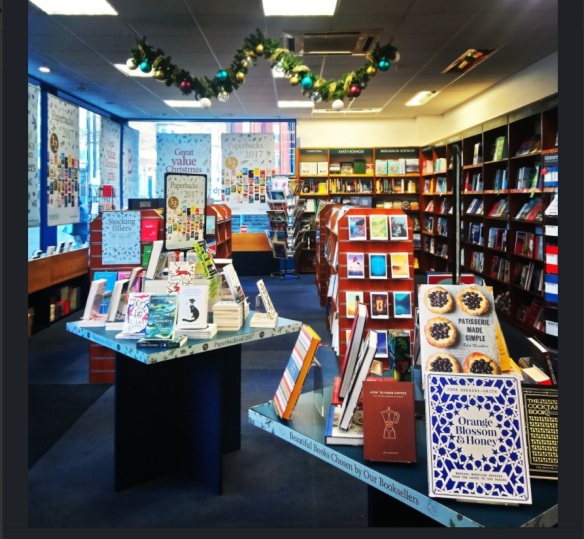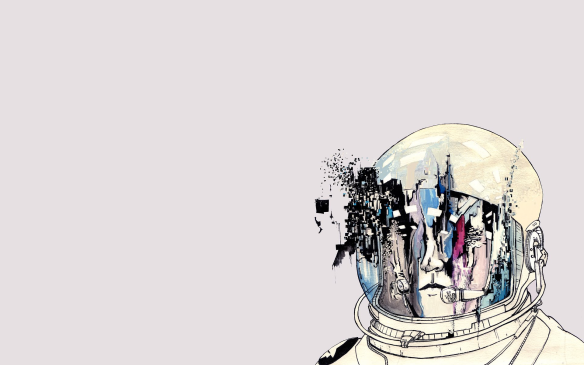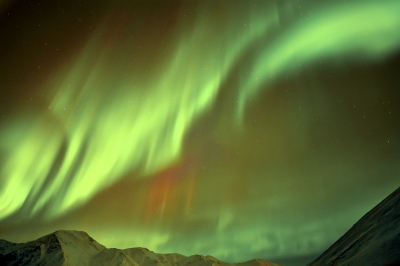I wrote story for a dear friend, and beloved bookseller, Jo West. I’d like to thank Jo and her team for all their hard work in making the Blackwell’s University bookshop such a wonderful place for the University and wider community alike, and for doing so much to support local writers and creatives. The shop will be very much missed. Best of luck in future endeavours to Jo and the team. Eilís x
Photo by @eilisphillips : Christmas at Blackwell’s Portsmouth 2017.

The lights go out and there is a profound silence.
Display tables with neatly stacked books lurk as bulky shadows in the corners of her vision. Stray fingers of moonlight trespass across the carpet and she stays a minute, just to watch. This is only her second week. This place feels new, and different. She has been used to the quiet seeping in when the bright lights are switched off at the end of a long day. The tranquillity usually ignored because she must gather her things, make sure that she has not forgotten anything, and remember to set the alarm. She’d be out into the night before realising that a dull quiet had settled on the shelves, upon the books. That bookshop was huge. It had an entire wall of gadgets specifically designed for people who go into bookshops to buy gifts for family members once or twice a year in a rush, usually the family members who are otherwise impossible to buy for. That shop had a Children’s section that was like a creche, with rainbow painted shelves, and its own collection of battered stuffed toys. It had a roster of staff like a football team, complete with reserves who no one ever saw, expect at the Christmas party.
This bookshop is different. It’s old. It has a gentle, lingering smell, it breathes. She hasn’t gathered her things or made her way to the door yet. She doesn’t know why she has stopped, but there is something in the quiet that is nagging at her. She almost expects to see a whole shelf come tumbling down the minute her back is turned. But that’s silly, she says. Still, it’s almost as if the room is waiting. She listens. It’s as if there is a low-lying hum just below hearing, an electric current charging the air. She tuts, and gathers her bag, blaming the season, and that book of old ghost stories she leafed through over lunch. She checks she hasn’t forgotten anything, and heads across the moonlit carpet towards the backdoor. She feels it. The breeze over her shoulder, like a sigh.
Out in the cold winter night, she closes the door behind her, and listens, waiting for the alarm to beep into silence. This done she can go home with another day’s work behind her. Walking away down the street, the rhythmic click of her boot heels on the pavement is the only sound audible. More than once she turns her head to look back but the shop windows are swathed in darkness.
That night she dreams the souls of books. Flitting in and out of their pages, these are their stories, whispering to one another. Their shapes are various, but smokey, illuminated and shot through with moonlight. The gossamer winged souls of literary classics mingle with bohemian shades in the section on Modern Philosophy. Tortured, wraithlike wisps emanate from the shelf marked ‘Horror’ watched sadly from afar by the War Poetry. The Humanities textbook’s pages are riffled through by the souls of Mathematics tomes, who wear the faces of little old men, and frown deeply. But this is just a dream, she tries to tell herself, tossing and turning, half awake, half dreaming. Did I set the alarm? She wakes herself up quickly, panicked, then remembers, and falls back upon the pillow.
As she drifts back into sleep, she returns to the bookshop, where it has become somehow colder, and darker. Globe-shaped lights emerge from corners like will o the wisps. The souls of books have become goblin-limbed and creeping. They dance in a ring around the display showcasing ‘Local Interest’ and in sing-song mocking voices, they single out the books that are to be bought the next day, because they know, you see.
The door rattles. Someone wants in. She sees the figure at the glass and rushes to open it. But she is dreaming, and can only watch, as the door creaks open by itself. The shop has a new occupant. An old man, his face half hidden by a flat cap, a scarf pulled up towards his chin, shuffles in. His clothes are of thick cloth, in mustards, and browns. They remind her of items she has seen in charity shops, clothes her grandfather would have worn. The goblins scatter at the customer’s heavy footfalls, and as they run, they place a finger to their tiny lips and whisper SHHHHHhhhhhh! to the darkness.
The old man examines the shelves. He needs no light, knowing them just as well in the dark. He has been coming here for over 80 years, and as he shuffles slowly through the shop he inspects the books carefully before returning them to their stands. She has the feeling that he is studying them, one by one, intensely, as if committing them to memory. He picks up one book, and holds it, smiling deeply. He knows this one already, quite well. She watches him, and wonders what his story is, but by now dawn is breaking over the brow of the hill. Shops all along the main street are lit by a glow like the embers of a waking fire. The old man sighs. He turns, and nods to no one, and vanishes in the shadows of the dawn.
The next morning, she arrives to find leaves of frost have crept up across the panes of the windows of the old bookshop. The door handle feels like an icicle under her hand and she has to blow upon her fingers to bring the warmth back. Inside, she sees the pristine rows of books as she left them the night before, sleeping in their covers, awaiting their owners. Though she checks, feeling foolish, they are no wraiths haunting the shelves, no tiny, sooty, footprints around the ‘Local Interest’ display. Only one object is out of place. A book has fallen to the floor by the counter. The sunlight catches its cover, glinting. It is a history of the town. She bends to pick it up, and flicks gently through the pages. A photograph catches her eye, making her rest her thumb upon the spine to hold the book in place, at the picture of the old man. As she holds the book in her hand, looking down into the face of the shop’s founder, a shiver makes its way across her spine, and yet now she smiles, deeply.


